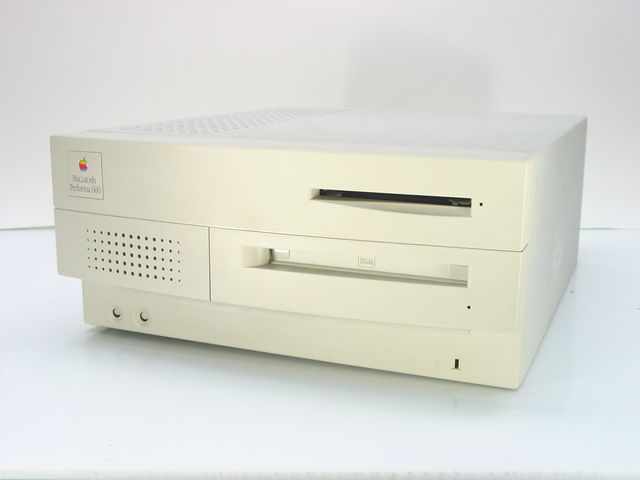This month’s submission is by Scott Smith, a professional nerd from California, which seems radical.
I have been using Macs my entire life. As long as I can remember, from when my Dad bought a Macintosh Plus in the year I was born, there have only been Macs in the Smith Family House. Even though I am 25 years old, I would consider myself an old-time Mac user going back to System 6. However, it wasn’t really until 1993 that I realized the potential of what a computer could offer.

After making a family day trip down to MicroCenter in Orange County one day in 1993, we returned with Macintosh Performa 600, Apple Extended II Keyboard and mouse, a 13 inch Apple color display, and an assortment of CD-ROMs.
Oh, the CD-ROMs. The Performa 600 was one of Apple’s earliest machines to come with a built-in CD drive. In these early days, the Performa’s CDs were not inserted via a tray or a slot, but by a awkwardly clumsy system of placing the CDs into a caddy and then sliding it into the drive. At any rate, CDs opened up a whole new world of computing for the early 1990s. While the web and Internet were in their infancy at this time, CDs were able to contain (then) massive amounts of information.
The Performa 600’s specs were nothing to get excited about, even in it’s day. The Performa line were sold at a lower cost and bundled with software aimed for families and first time computer buyers. In many ways, it was a lower priced Macintosh IIvx. As a little kid first growing into the world of computers, the specs were not relevant or even something I was aware of. All I knew is that it could do things, and sometimes it crashed and sometimes it was slow. When that is the only experience you of, you do not see anything wrong with it.
Today, I work as a Web Designer for California Lutheran University. I can directly trace my love of graphics and computer art back to one piece of software on this old Mac. That would be Kid Pix. If I was not playing with Legos, I was seen behind a desk and a piece of paper drawing cars and airplanes. Kid Pix opened up a whole new world to me. This allowed me to follow my unencumbered youthful enthusiasm for drawing race cars, airplanes, and even early attempts at web design. The drawing brushes, fonts, special effects, and silly sound effects are all burned in my memory.
Perhaps it’s the nostalgia, or maybe it’s just what my tastes have evolved to, but there are a few games from this era have remained my absolute favorites to this day. Indiana Jones and the Fate of Atlantis was a classic Lucas Arts adventure game that combined a fantastically unique art style, music, and storytelling that has not been topped in my opinion. My other favorite was very popular Myst. While I didn’t get it right away as a young kid, it was a game from this era that in later years I really grew to appreciate. It was a game like none-other and was way ahead of it’s time in 1993.
After a few years, my parents upgraded the family computer once again and thus the family’s Macs were passed down. First to my older brother and then to me. By the time I ended up with the Performa 600 as my own, I was fast becoming proficient with the Mac OS. I was able to install Mac OS 7.6 onto this machine, the final version of the system it was able to run. When the time came for me to get the latest family Mac passed down to me, the Performa went somewhere into storage with it’s fellow computers. It would not serve any purpose today, but I look back on the Performa 600 as a significant chunk of my childhood.
Want to write about an old Mac you love? Get in touch. In your initial email, please indicate which Mac model you are planning to write about, so I don’t have systems covered more than once.
